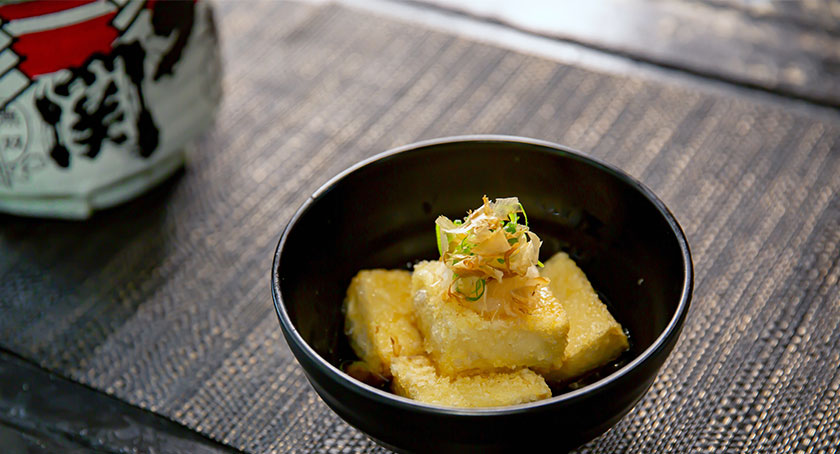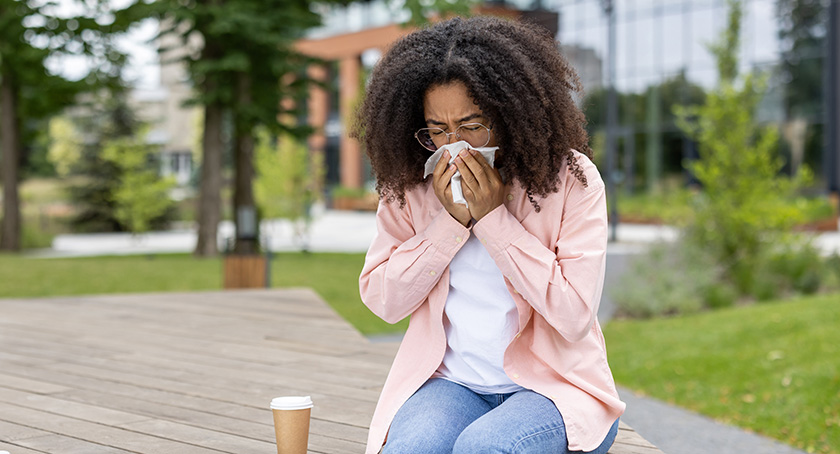Features
Sustaining Long-Term Health of Herbal Products
Investments and commitments to sustainability are critical for companies, and the plants they rely on, to thrive in years to come.
By: Sean Moloughney

In order to ensure long-term success in the herbal products industry—and not just immediate profits—stakeholders need to take sustainability more seriously, according to Wilson Lau, vice president of Nuherbs.
Transparency, strong supplier vetting, and real investments in sustainability will continue to be critical in order to attempt to mitigate the widespread disruption climate change is inflicting on ecosystems around the world, including herb species.
Lau is the third generation of his family to lead Nuherbs, a Chinese herb ingredient company founded as a pharmacy in Oakland, California’s Chinatown to provide Traditional Chinese Medicine (TCM) herbs to his grandmother Dr. Bing Yin Lee’s patients.
Actively involved with industry initiatives, Lau has been a member of the American Herbal Products Association (AHPA) Board of Trustees since 2008, and has held various leadership roles within that organization. This year he received the AHPA Herbal Hero Award for his significant contributions to the association’s initiatives.
“In his senior management role with the third-generation family owned Chinese herb company, Nuherbs, Wilson helps the company set an important example in following best practices with a long-term view while staying true to traditional use of herbs, from sustainability practices to robust testing to ensure identity, purity and potency,” said Herbalist & Alchemist CEO Beth Lambert, who nominated Lau for the award.
Lau recently discussed the issues and challenges of ensuring sustainability for herbal products, and what actions companies can take to affect meaningful change.
Nutraceuticals World (NW): What factors, guidelines and authorities determine whether or not the supply of an herbal species is sustainable?
Wilson Lau: The criteria used by organizations throughout the world involved in sustainability reporting can vary, but generally they all collect similar information, which includes: information at the farm or collection level, market usage, university research, and market research.
All of this information together gives a picture that one aspect alone could not. Those harvesting botanicals at the collection level, sometimes called wildcrafters, see first-hand changes in the health and quantity of these botanicals growing in a non-cultivated setting, so that’s very important information. Continuity in their observations season to season is important, which is why they need to be paid well enough to continue collecting in a way that preserves future harvests. Having information on the size of the market and changes in demand compared to amounts cultivated is very telling as well.
NW: What role does transparency play in ensuring sustainability?
Lau: Transparency allows us to harness the power of the masses (end-users) to push the demand that sustainable practices be followed through the supply chain all the way back to the farm and/or collection level. Those consumers who ask questions about sustainability motivate marketers to source responsibly, and use that in their marketing messaging. For years it’s been primarily up to individual companies to carry the sustainability mantle for whatever reason is important to them.
For Nuherbs, as an example, using herbs from their original growing area is an essential component of the specific effects Traditional Chinese Medicine herbalists want from those botanicals. Geo-authenticity, or Di Dao (authentic source), is the principle that herbs wildcrafted or cultivated where they naturally grow will have better potency and authenticity compared to those cultivated in non-native regions. The temperature, soil, terrain, micro-climate, and humidity all influence potency of the plant. For the plants to continue to thrive, the entire eco-system has to be protected.
NW: What are the challenges suppliers face in meeting demand for herbal products at scale in a sustainable manner?
Lau: Perhaps the biggest challenge is whether or not a brand is willing to commit to paying higher prices to support the sustainability initiatives. They are stuck in a hard place, because will the customer pay more for the cost associated with the sustainability initiatives? Logically, there are some who will, but some who will not. Good communications telling the story and making a compelling case might be able to move those numbers, particularly with consumers deeply concerned about the impending negative effects of climate change. Given that younger consumers tend to be big supplement users, and also care deeply about this issue, it’s a smart investment.
NW: What advice would you give companies in qualifying suppliers and evaluating the sustainability of their products?
Lau: Identify suppliers that you can partner with who are willing to help you with your sustainability initiatives. Company sustainability programs have to go beyond installing solar power or recycling; they need to support sustainability at the farm/collection level in a meaningful way.
NW: What are some common botanicals whose supply is not sustainable?
Lau: When any herb suddenly becomes hot, such as Maca recently, sustainability of supply is an issue. Companies need to have a checklist when they are suddenly selling a lot of an herb that previously didn’t move much volume. The list would include:
• Is this (probably) short term spike threatening long term viability of the plant, and what can we do to mitigate that?
• Is demand outstripping available supply, and are we testing robustly enough to ensure our product is not adulterated?
• Is our supplier a good partner in both of those concerns?
NW: Are there any success stories or examples of well-managed herbs?
Lau: I love the work that FairWild, a Swiss-registered non-profit organization that maintains the FairWild Standard and promotes its adoption worldwide, is doing. They have a certification program for wild-collected herbs that end up in great products that we can enjoy knowing they supported the ecosystem from which they came.
Nuherbs supports the FairWild Foundation, particularly their efforts to introduce the FairWild certification system in China. Events they organize are illuminating and helpful, such as a market promotion and best practice sharing workshop in Kunming, China in late 2018. We find it beneficial to participate in the FairWild Advisory Panel, a platform created to provide an additional source of strategic and technical guidance to the organization’s board.
NW: What effect is climate change having today on the growing, harvesting and yield of popular botanicals?
Lau: The real question is what isn’t impacted today by climate change? We’re seeing a change in harvest seasons and in growing areas. Ecosystems are disrupted, effecting every living thing in them because they are so interconnected.
NW: What actions can be taken? What’s the plan to mitigate climate risks and effects?
Lau: Until there is international consensus and commitment to slow and mitigate the effects of climate change, local plans can only have limited impact, but it’s still worth doing what we can.
NW: What else can companies and brands do to promote more sustainable practices?
Lau: I think we all have to take a leap of faith, invest in ways that we can. I would say, if we want to use a hugely impacted herb, take the leap of faith and invest in the sustainable sourcing by committing via contract purchases. Say to your company “this herb needs our protection, let’s use some of our profits from other skus to support this sku. Let’s champion this herb.”




















